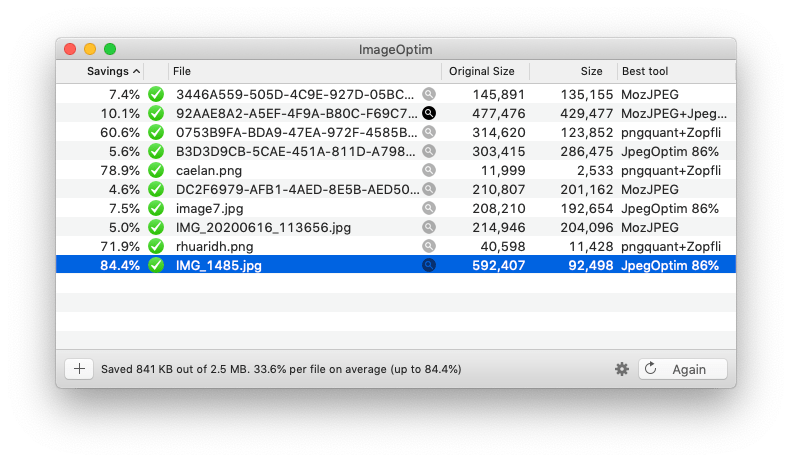At Lochend Community High school they strive to open up opportunities for all of young people regardless of ability or background. They have a strong focus on Developing the Young Workforce across the whole school and through their links with colleges, universities, employers, local business and other organisations. They want to embed work related learning opportunities across the whole school. They continue to expand and develop skills through a range of activities in and out of the classroom with a particular focus on ‘closing the gap’. They are empowering young people to develop their skills for Life, Learning and Work. This strategy involves establishing ever-increasing local, regional, national and global partnerships to support all curricular areas to provide real- life contexts for learning.

How have they done this?
Working with young people and partners to embed opportunities and developing skills across the curriculum.
Enhance young peoples understanding of different career routes ,offering curricular programmes and regular engagement with employers.
Actively collaborate with partners to develop and deliver a curriculum that supports the development of young peoples employability and career management skills.
Reviewing the work placement model in line with the ‘Work Placement Standard’,creating bespoke opportunities tailored to the needs of all young people.
Careers Events
Allowing young people to find out about potential employers. Young people have the opportunity to talk directly with representatives from industry and education.
HE/FE Fairs
Partnerships with City of Glasgow, Glasgow Clyde, Glasgow Kelvin, West College Scotland, GCU, UWS, UoG, Strathclyde, Stirling and Glasgow School of Art. Each year group has a short presentation and an opportunity to meet with the Further and Higher Education representatives to ask questions about courses, entry requirements and education beyond school in general. Parents of senior phase young people are invited to attend.
Mock Interviews
All young people are given interview skills training and mock interviews from their business partners.
Salters Chemistry Festival
In partnership with University of Glasgow, Salters Chemistry and Royal Society of Chemistry, young people are given experience of working in a working laboratory carrying out investigations and experiments.
Chemistry Careers Event
In partnership with Glasgow Science Centre, UWS and Royal Society of Chemistry young people learn about laboratory techniques, discuss career pathways and alternative routes into careers in Chemistry
STEM Glasgow/Jacobs Engineering Challenge
In partnership with DYW Glasgow, West Partnership, Glasgow City Council and Jacobs Engineering young people are involved in real life engineering challenges. Working with partners to create a solution to plastic pollution while investigating and learning about careers in the sector.
Go4Set
Young people have the opportunity to develop skills, inform subject choice and change perceptions about STEM, raising awareness of how studying STEM related subjects can lead to rewarding careers.
SmartSTEMs
In partnership with Glasgow Kelvin College young people explore STEM related careers with input from various organisations. Young people take part in practical activities to enhance skills and knowledge of STEM based careers.
Science Club
In partnership with STEM Ambassadors S1 young people are involved in weekly activities which promote learning and careers in STEM. Links are made to STEM careers and young people are encouraged to explore and research career pathways.
Numeracy Week
Making links between numeracy used in subjects across the school and how numeracy is used in the world of work. Using partners such as credit unions, Barclays Bank, Santander, Mott McDonald, NHS, Marks and Spencer to showcase Maths in the world of work.
Apprenticeship Tests
Young people have the opportunity to learn and practice numeracy tests for apprenticeships, colleges and universities.
P7 Maths Challenge
Young people work in teams to learn about Maths in the world of work.
ScotBeef/Aldi
Young people working collaboratively, researching existing products and designing a new product to present as part of the competition. The winners will have their product marketed, displayed and sold in Aldi stores across the country.
Quality Meat Scotland Chef Visit
Chef visit to work with S2 young people, demonstrating and embedding skills as well as sharing their experience of working in the hospitality industry
ZooLab Junk Bus
Delivered in partnership with Zoolab Junk Bus young people learn about the production of some of our favourite foods.
GHA/ Loretto Afternoon Tea
Partnership with Glasgow Housing Association and Loretto Housing allowed young people to work with local partners and allowed an opportunity to experience working in this sector.
Future Textiles
Developing an understanding of the textile industry and the available progressions pathways.
Marks and Spencer – Work Placement Programme.
The partnership was set up to strengthen the link between employers and young people, building confidence and supporting the transition between school and the workplace.
30 young people have had the opportunity to apply and experience a work placement in the retail sector. Many young people have secured part time jobs as a result of the experience.
Glasgow Kelvin College Pathway
As part of the S2 options process, young people will be offered the opportunity to attend Kelvin College for one afternoon per week throughout the school session. This partnership programme allows young people to participate in a college based course alongside their school studies. This will not only enrich their learning experiences but will provide them with qualifications in the form of SCQF Level 4 units. Young people enrolled in these courses will also be considered as an internal applicant for any further courses.
RUTS
RUTS aims to equip young people with the confidence and skills, raising their aspirations. RUTS are currently delivering a bespoke personal development/employability, this is achieved through motorcycle and bicycle based programmes tailored to the individual needs of the young people.
NHS @ Work
Young people S1-S6 have the opportunity to attend an NHS@Work Event showcasing the careers available within the NHS, dispelling some of the myths about working in the NHS.
Widening Participation
Educational support and guidance programme designed to widen access to higher education.
FARE
FARE are a voluntary organisation based in Easterhouse . They work with communities to improve the lives of children and families. FARE are employed within the school, engaging with a number of projects and programmes that link to the DYW agenda.
Young Enterprise Company Programme –
The Company Programme is the ultimate business experience for S5 and S6 young people. They set up and run their own company and develop a range of skills throughout this entrepreneurial experience.
Career Ready
Career Ready is a programme that prepares young people for the world of work. The model links young people to employers through master classes, mentoring, workplace visits and internships.
EY Foundation partnership
EY Foundation is a charity that works directly with disadvantaged young people,employers and social entrepreneurs to create and support routes into education, employment and enterprise. They support the school in world of work events, mock interviews and industry presentations. They also have a paid work experience programme called Smart Futures.
Skills Academy
Working with a range of business partners, young people who are studying less than two National 5 qualifications are invited to attend a programme that helps develop crucial knowledge and understanding of the world of work.
Flexible Work Placement Model
Lochend offer a flexible approach to work placements, encouraging and supporting young people to source and secure their own work placement . There are also targeted placement opportunities available on WorkIT and via our business partners which are available to all young people.

Departmental DYW displays
Displaying potential careers and pathways relevant to their own curricular area. The Pupil Leadership Team have created a number of notice boards around the school to promote the DYW agenda. The boards also include live job/apprenticeship and work placement opportunities.

Lochend CHS Skills Framework
They established a systematic and progressive skills development framework that will be used across learning. Young people will have the opportunity to reflect on these on an on-going basis and incorporate them into their profiling activities. The Skills Framework will be displayed throughout the school.
During the academic year all staff took part in CLPL around the DYW agenda. Staff received an introduction to the Career Education Standards and an introduction to labour market Information.
Social Media
All information relating to DYW and employability is advertised on Facebook and the DYW Twitter page. Parents engaged regularly with posts on Facebook which ensured that parents/carers/guardians were more aware of the range of opportunities and supports available.
Work Inspiration Visits
Young people have has the opportunity to experience the world of work and to find out more about career pathways:
| Art Galleries |
Hilton Hotel Group |
IBIS Hotel Group |
| UK parliament |
Engie |
GHA |
| Auchenlea Building Site |
TIGERS Construction Training |
STV |
| Glasgow Film Theatre |
National Theatre of Scotland |
Platform @ The Bridge |
| Emirates Arena |
Braehead Shopping Centre |
BBC Scotland |
| Glasgow Fort |
Marks and Spencer |
Glasgow Kelvin College |
| City of Glasgow College |
Glasgow Caledonian University |
FARE |
| Glasgow Life |
|
|

Next Steps
Increase the number of MWOW ambassadors
Engage in more profiling support
Recording achievements using My World of Work
DYW newsletter
Parental Engagement
Quotation
“I developed so much confidence from taking part in a lot of these activities. I have met so many great people who have helped nurture me and give me the platform to learn. I have so many more contacts now than I did before.”
Young Person







